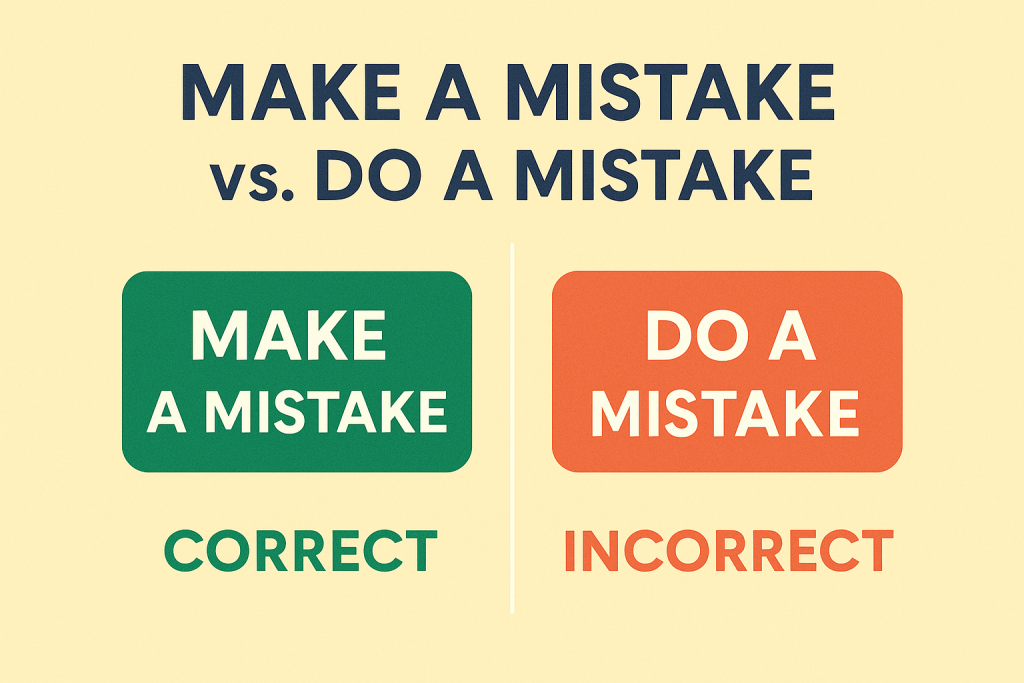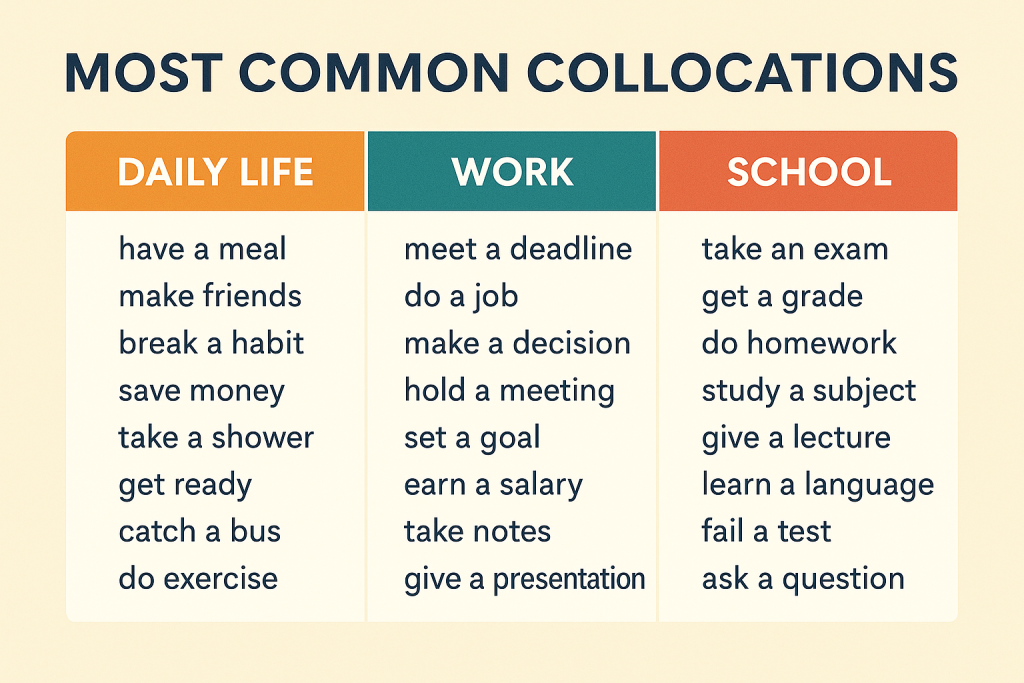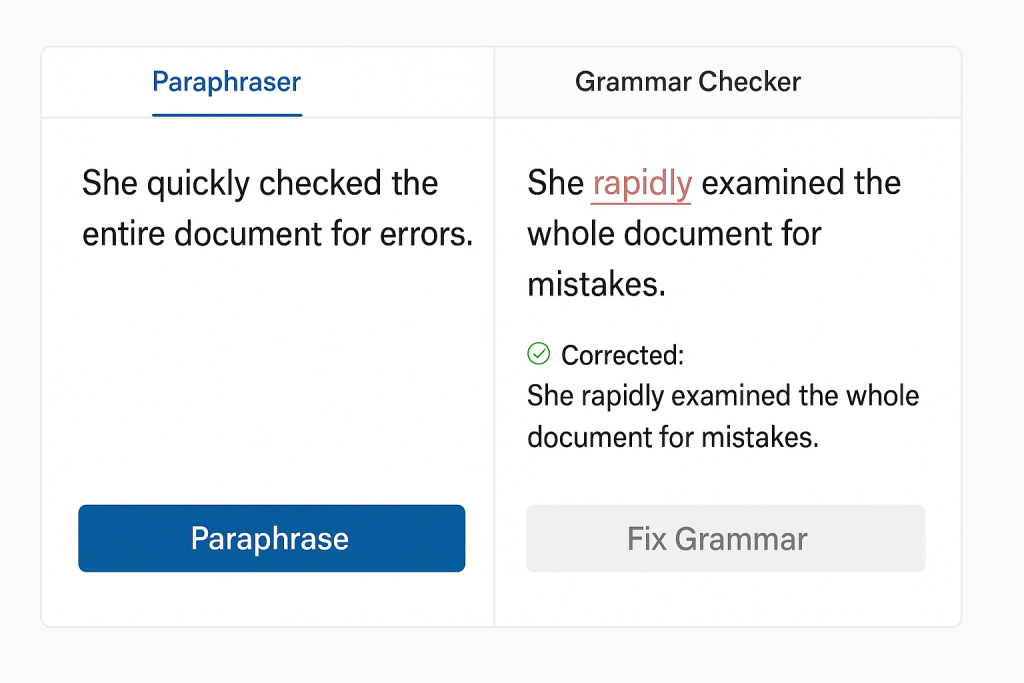Ever Said “Do a Mistake”? Same.
Let’s begin with a little public shaming: Have you ever said “do a mistake” and then paused because something deep in your soul whispered “nope”? Congratulations, you’ve just met the ghost of collocations.

Collocations are the secret word partnerships in English—like power couples, but for verbs and nouns. Think “make a decision,” “take a shower,” “catch a cold.” These word pairs are what make your English sound fluent rather than stitched together with a glue stick and fear.
Still confused? Great, keep reading. Or, if you’re the nerdy type who likes to double-check sources while pretending to read this:
Cambridge Dictionary’s definition
Oxford Learner’s Dictionary on collocations
What on Earth Are Collocations?
Short version: collocations are the BFFs of English words. They just like hanging out together, and when you split them up, things get awkward.
Example:
- ✅ make a mistake
- ❌ do a mistake (don’t do this. again. ever.)
It’s not just about grammar—because technically “do a mistake” is kind of okay. The problem is that it sounds wrong to native ears. And sounding wrong is the fastest way to be misunderstood or, worse, pitied.
There are collocations for every part of life. Some even help you sound like less of a weirdo when using phrasal verbs in business English or prepositions like “in,” “on,” and “at” without causing an existential crisis.
Why Should You Care?
Because you’re not learning English just to pass a test or write boring emails. You’re learning it to speak like a real person. Collocations help you sound fluent, confident, and—dare I say—cool?
Here’s why they matter:
- They make you sound fluent, not like a grammar app glitching in real time.
- They prevent weird errors that make people tilt their heads like confused puppies.
- They help with listening skills, especially with idioms. (Check out these lesser-known English idioms if you’re feeling fancy.)
Mini-story time: Our friend Leila once said, “I did a party last night.” She meant well. But everyone thought she meant she constructed the party from IKEA parts. She now says “I had a party” and has friends again.
Common Collocations That Actually Matter
Here’s a list of collocations you’ll actually use. Not the weird ones from textbooks like “commit arson”—unless your life is way more exciting than mine.

Daily Life
- make a decision – I had to make a decision quickly.
- take a break – Let’s take a break before our brains melt.
- catch a cold – Don’t go outside barefoot if you don’t want to catch a cold.
Work
- meet a deadline – We really need to meet the deadline this week.
- give a presentation – She gave a presentation that didn’t make anyone fall asleep.
Academic
- do research – He’s doing research on climate change.
- write an essay – Not like this blog, which is basically a monologue.
Social / Emotional
- make friends – It’s easier to make friends when you speak fluently.
- feel tired – I feel tired of correcting people who say “do a mistake.”
Need more practice? Also check out:
How to Actually Learn These Without Crying
I get it. You’re tired. You want to be fluent, but your brain has the energy of a boiled potato. That’s fine. Try these:
- Read English that’s not boring. Blogs, subtitles, emails from angry clients—anything with real language.
- Use flashcards but with full sentences. Don’t just memorize “take a break” alone in the void.
- Write collocations in context. Like: “I want to take a break from people who say ‘do a decision’.”
- Talk to yourself. Out loud. In English. Bonus points if people stare.

And if you need tools to help:
- Try the Paraphraser to learn variations.
- Use the Grammar Checker to avoid public embarrassment.
Also useful for leveling up your grammar swagger:
Final Thoughts: You and Collocations, Sitting in a Tree
Look, learning collocations isn’t just about sounding smart. It’s about not sounding broken. It’s the bridge between textbook English and real English—the kind people actually speak.
So here’s your challenge: pick five collocations from this blog and actually use them in the next week. Say them. Write them. Shout them into your cereal bowl. I don’t care. Just use them.
What’s your favorite (or most embarrassing) collocation story?
Have you ever made a combo so wrong people needed a moment of silence?
👇 Drop it in the comments. I’ll pretend not to judge.
